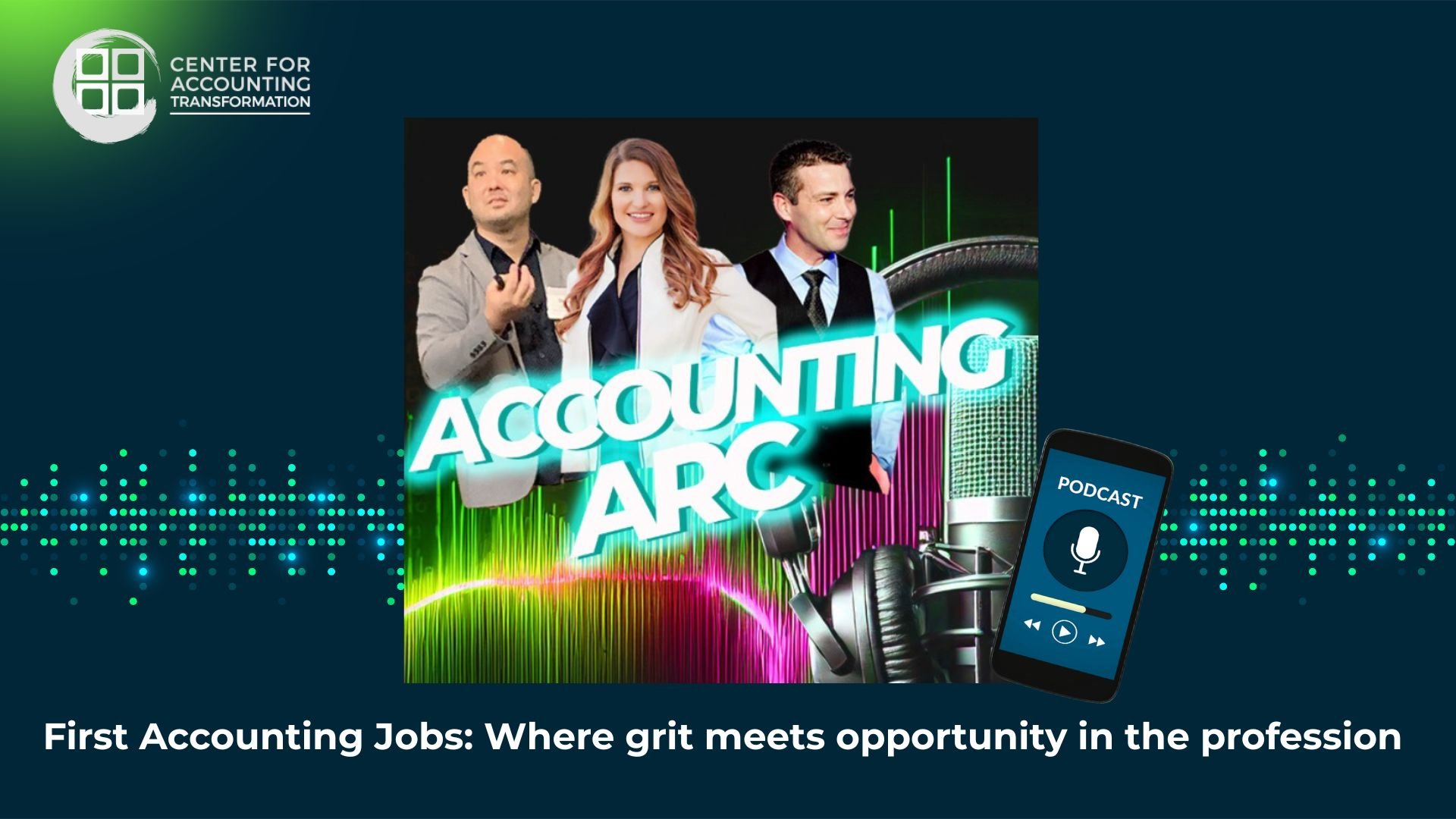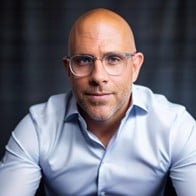0
First Accounting Jobs: Where Grit Meets Opportunity in the Profession

On this episode of Accounting ARC, hosts Liz Mason, CPA; Byron Patrick, CPA.CITP, CGMA; and Donny Shimamoto, CPA.CITP, CGMA rewind to the roles that shaped their careers—and the professional judgment they still lean on today.
Patrick, CEO of VERIFYiQ and co-founder and educator of TB Academy, began his career at the beach—literally—working in the accounting office for a family business with 13 hotels and four restaurants in Ocean City, Maryland. Beyond payables and consolidations, he shuttled locked cash bags between properties, an experience that made internal controls feel very real, very fast. It also foreshadowed his tech path, as he helped the controller set up computers across the properties.
Shimamoto, founder and managing director for IntrapriseTechKnowlogies LLC and founder and inspiration architect for the Center for Accounting Transformation, reveals his earliest paid work—AP data entry and month end close at a logistics company—gave way to an IT internship at Coopers & Lybrand (now PwC), where he deployed laptops running Lotus 123 and rolled out the firm’s Lotus Notes–based paperless audit system. He was learning Novell NetWare in school by day and upgrading it in the office by night—proof that technology has long been integral to how accountants work.
Mason, CEO of High Rock Accounting, shares that her first big assignments came in casino audits. As a young staffer with a checklist and a clipboard, she observed cash drops, traveled with security at odd hours, and learned the discipline of control environments—hands visible to cameras, no personal items in the count room, and strict separation of duties. When the casino’s counting machines failed on yearend, she witnessed a multimillion-dollar hand count that stretched to 15 hours.
Those “firsts” weren’t just war stories; they created context. Mason later traced a material change in craps profitability to targeted marketing that attracted inexperienced gamblers—an investigation that required correlating tourist bus logs, timelines, and revenue patterns. Her story shows accountants translate what happens in the business into what shows up in the numbers.
Across the episode, the trio emphasizes three themes. First, follow your curiosity into industries you care about—Patrick notes that accountants exist in every sector, while Shimamoto describes a winery engagement that required understanding production, systems integration, and valuation (with an impromptu lesson from the winemaker).
Second, economics matter. Mason suggests choosing sectors with strong margins because whether you’re internal or external, accountants tend to be budgeted as “overhead.”
Third, public accounting is a powerful launchpad, giving rapid exposure to different models, risks, and operations.
Ultimately, “first jobs” forge judgment—the ability to connect nonfinancial events (marketing, supply chain, policy) to financial impact. That systems thinking helps accountants explain headlines like tariffs or technology shifts in concrete, client relevant terms.
Don’t miss an episode. Be sure to SUBSCRIBE below:

















